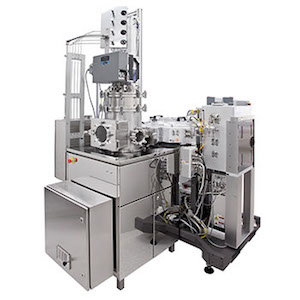‘Mike King’
Spotlight Podcast Episode 25: Nidhi Jyotsana – knowledge of cancer can inform our study of COVID-19
Oct. 27, 2020—Episode 25 of the VINSE Spotlight Podcast Nidhi Jyotsana tells Alice Leach how our knowledge of cancer can inform our study of COVID-19. Nidhi’s paper “The Impact of COVID-19 on Cancer Risk and Treatment” was published in Cellular and Molecular Bioengineering. Nidhi was a Research Assistant Professor in the lab of Mike King and is...
Spotlight Podcast Episode 14: Jenna Dombroski – progress toward a breast cancer vaccine!
Aug. 4, 2020—Episode 14 of the VINSE Spotlight Podcast Alice Leach talks with Jenna A. Dombroski about progress toward a breast cancer vaccine! Jenna’s paper “Fabrication and Characterization of Tumor Nano-Lysate as a Preventative Vaccine for Breast Cancer” was published in Langmuir. Jenna is a prior VINSE REU student and current third year graduate student in Biomedical...
VINSE researchers developed a promising treatment for breast cancer metastasis
Jun. 16, 2020—Updated June 13, 2020 (Precision Vaccinations)With a surprisingly simple approach in which cancer cells are first grown, ruptured and converted into nanoparticles, and then used as a vaccine, Vanderbilt University researchers say they have developed what appears to be a promising treatment for breast cancer metastasis. Metastasis is the last stage of cancer, responsible for...
Cellular soldiers designed to kill cancer cells that get loose during surgery, stop metastasis
Sep. 11, 2019—Cellular soldiers created using the body’s own defenses can track down and kill escaping cancer cells during surgeries, preventing metastasis and saving lives, a Vanderbilt University biomedical engineer has discovered, particularly in cases of triple negative breast cancer. Michael King, J. Lawrence Wilson Professor of Engineering and chair of the biomedical engineering department, and his...
NSF equipment grant expands nanoscale research capabilities
Oct. 24, 2017—An advanced tool to be housed at Vanderbilt Institute for Nanoscale Science and Engineering core facilities will allow researchers to deposit uniform, ultrathin films for microelectronics, energy conversion devices and biomaterials. A $600,000 grant from the National Science Foundation’s Major Instrumentation Program is acquiring an ALD – atomic layer deposition – system. Jason Valentine, associate...




